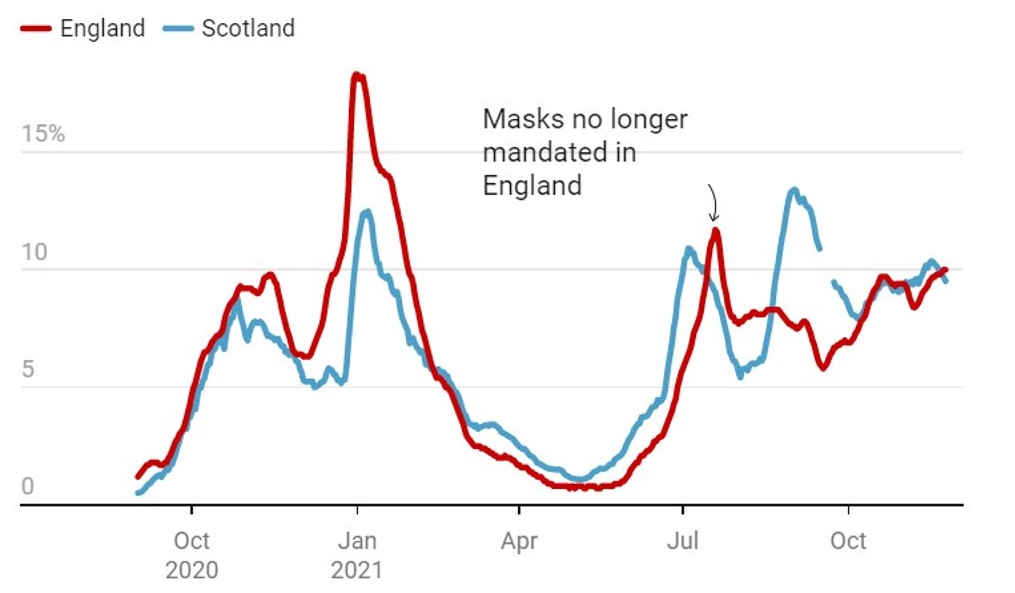Video: A mask-wearing, 19-year-old US athlete collapsed during an 800-meter run (April 2021):
Conclusion
Face masks in the general population might be effective, at least in some circumstances, but there is currently little to no evidence supporting this proposition. If the coronavirus is primarily transmitted via indoor aerosols, face masks are unlikely to be protective. Thus, health authorities should not assume or suggest that face masks will reduce the rate or risk of infection.
England vs. Scotland: Mask mandate without benefit
 PCR positivity rate: England removed its mask mandate on July 19, 2021 (Spectator/DS)Postscript (August 2021)
PCR positivity rate: England removed its mask mandate on July 19, 2021 (Spectator/DS)Postscript (August 2021)
A long-term analysis shows that infections have been driven primarily by seasonal and endemic factors, whereas mask mandates and lockdowns have had no discernible impact (charts: IanMSC).
[See charts]
https://swprs.org/face-masks-evidence/
Further reading
Conclusion
Face masks in the general population might be effective, at least in some circumstances, but there is currently little to no evidence supporting this proposition. If the coronavirus is primarily transmitted via indoor aerosols, face masks are unlikely to be protective. Thus, health authorities should not assume or suggest that face masks will reduce the rate or risk of infection.
England vs. Scotland: Mask mandate without benefit
 PCR positivity rate: England removed its mask mandate on July 19, 2021 (Spectator/DS)Postscript (August 2021)
PCR positivity rate: England removed its mask mandate on July 19, 2021 (Spectator/DS)Postscript (August 2021)A long-term analysis shows that infections have been driven primarily by seasonal and endemic factors, whereas mask mandates and lockdowns have had no discernible impact (charts: IanMSC).
[See charts]
https://swprs.org/face-masks-evidence/
Further reading
- The face mask folly in retrospect (August 2021)

Comment